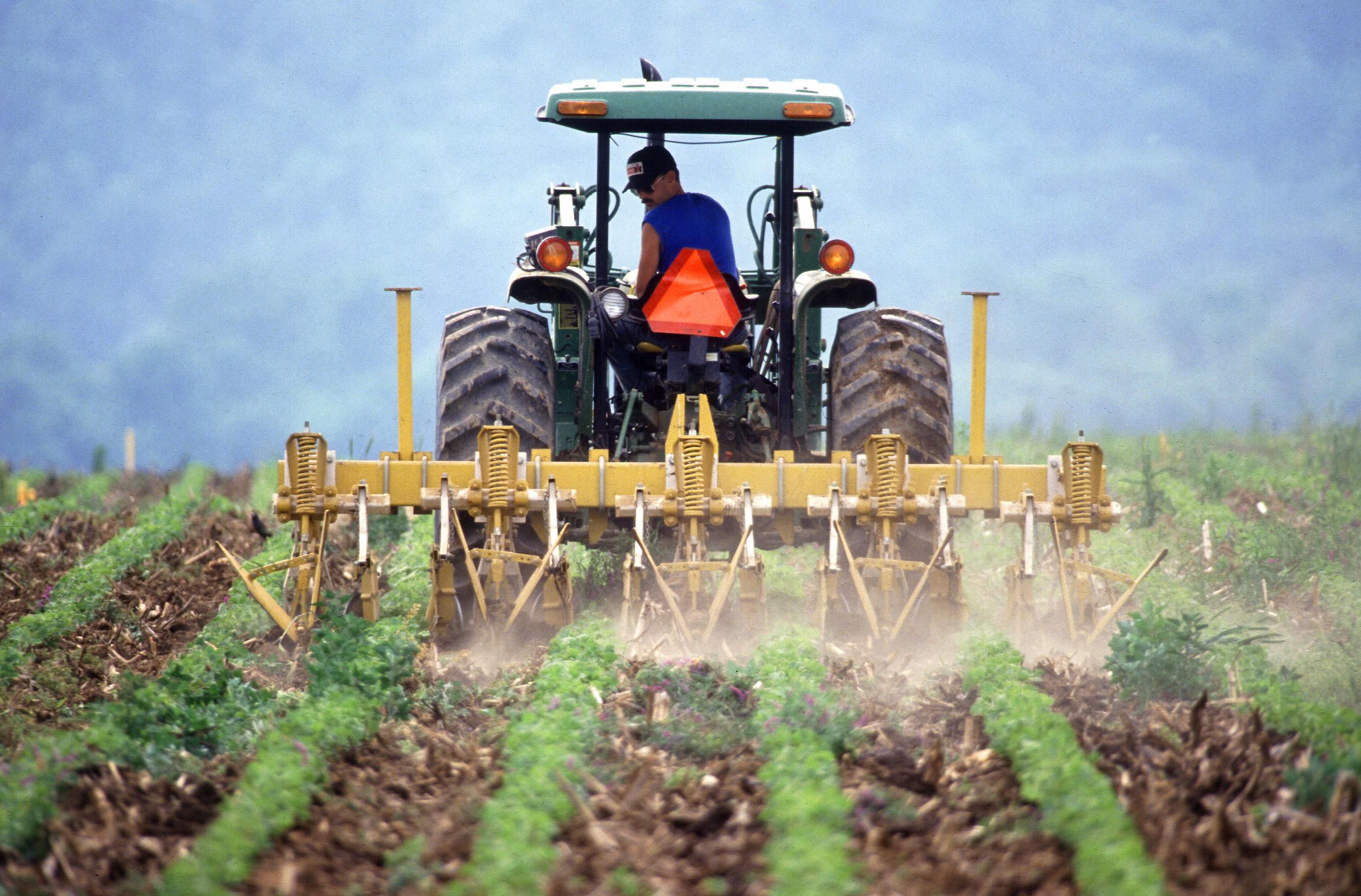There is evidence that organic food is not necessarily as environmentally friendly and sustainable as is commonly believed to be. Nor are genetically modified organisms (GMOs) by default a threat to the environment. In fact, GM technology can help organic farming become truly sustainable.
Two years ago, on 24 March 2014, the European Commission adopted the legislative proposal for a new Regulation on organic production which will come into effect in 2017. The proposal prohibits organic producers from using genetically modified seeds for production. This seems about logical at first sight, as organic production is often believed to be antithetical to a technology that is considered evil and unnatural by most Europeans. Is that really the case?
Organic farmers DO use pesticides
Organic farming is defined as an agricultural method striving for sustainability, primarily through avoiding the use of synthetic fertilisers and pesticides. It relies on biological processes to control weeds, insects, and other pests. Organic farming does use pesticides and insecticides, but they just happen to be considered natural because they contain natural chemicals rather than synthetic ones. To receive authorisation under EU regulation, organic pesticides must derive from natural resources and should be less processed than synthetic pesticides. There is no requirement for them to be ecological or sustainable.
Organic pesticides are not necessarily harmless or ‘green’. For example, organic winemakers in Europe are allowed to – sometimes even forced to – use copper sulphate, which is a pesticide that fights several fungal diseases European grapes are susceptible to. True, copper sulphate fights these diseases, but it also has disastrous consequences. Research demonstrates that copper sulphate pollutes the groundwater and contaminates the soil with toxic metals; it negatively affects the soil sustainability and quality while threatening human health. Unfortunately, almost all of our favourite quality wine grapes are susceptible to these diseases and thus benefit from spraying.
Genetic modification can be a solution for organic winemaking in Europe. GM technology can introduce a specific disease resistant gene from a not-so-popular grape into a tastier one. With GM technology this can be done without changing any other traits of the grape – taste, shape, colour and nutritional levels. This way, European organic winemakers can reach their ultimate goal of using no pesticides. They both produce truly organic wine and preserve soils.
Some organic techniques are not enough to save the crop
Sometimes, organic farming cannot avoid risking the life of a crop in order to fight several weeds ‘organically’. In rice cultivation, for example, weediness is an unavoidable problem endangering the crop. Conventional farmers typically fight this with synthetic herbicides. Organic farmers, however, cannot use such remedies; they use water control techniques to regulate the weediness. In other words, they drown the unwanted weed. With the weed, rice too is often drowned and the organic farmer ends up killing the rice while fighting to protect it.
Plant breeders have been trying to address this problem since the 1970s. For instance, the International Rice Research Institute (IRRI) developed a submergence resistant rice by back-crossing the high yielding rice with the submergence tolerant rice. On the down side, this process took about 30 years. Obtaining results with conventional breeding techniques often takes that long because developing a crop requires crossing two breeds over and over until the desired gene occurs within the desired crop.
Luckily, plant biotechnology can be more efficient than that. Genetic modification differs from plant breeding by means of precision and speed. By genetic modification one can readily introduce an exact, well-characterised gene from one plant into another plant. Plant breeding, on the other hand, mixes a vast set of genes of unknown function. The end result is not always as precise as in genetic modification.
In the case of rice, biotechnology can identify a rice crop with a gene that is resistant to floods, and insert it into a rice crop that is high in yield – even tastier. In the case of wine, GM technology can enable the organic farmers to not rely so much on copper sulphate.
Steady, ecological solutions to fight climate change
We are all aware that climate change is bound to bring many more diseases, pests and weeds into agriculture which we will have to combat effectively. In order for organic agriculture to survive, we will need fast and effective solutions that do not require 30 years to solve a problem. Genetic engineering indeed brings solutions. Does Europe really want to close the door of science for organic agriculture during the era of climate change? Do we really need a ban on GMOs within the organic food regulations?
Plant breeding is not any more natural than genetic modification. The approach of using genetic modification in organic farming may be criticised for incorporating unnatural methods into a “natural” farming technique. But, how natural is plant breeding? Isn’t plant breeding also a manmade process of forcing plants to literally mingle? Isn’t agriculture an unnatural process of forcing plants to grow a certain way in a certain field, within a certain period? Then, why would it be unacceptable to conduct such a process in a laboratory, with full control, caution and numerous risk assessments on human health and the environment (a must under the EU GMO regulations)?
If GMOs can help organic farmers to grow without needing pesticides – natural or not – and save them from low yields, then the EU regulatory system should allow to incorporate biotechnology for the sake of ecology and environment. The EU does not have to keep an outdated state-of-mind in an age where the organic Amish farmers grow GM crops.
1 comment













1 Comment
GMOs and Organic Farming: Can they be friends? | Politheor: European Policy Network
13/05/2016, 5:03 pm[…] GMOs and Organic Farming: Can they be friends? […]
REPLY